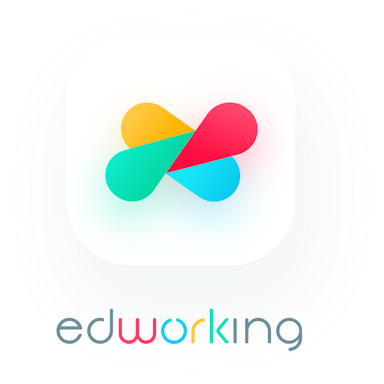Ah, the life of a consultant! Sounds fancy, doesn’t it? Jet-setting to client meetings, analyzing complex data, and savoring the satisfaction of solving business conundrums. But let's face it, behind the scenes, there's a lot of juggling—time management being a crucial part of it. With multiple clients to serve and deadlines to meet, you can't afford to be lax about tracking your time. How do you ensure you're being productive and billing accurately? That's where time tracking software comes into play. In this guide, we'll dive deep into the world of time tracking tools, tailored specifically for the needs of consultants. Keep reading, and let's unwrap this mystery together!
 Why is Time Tracking Important for Consultants?
Why is Time Tracking Important for Consultants?
The Dilemma of Time Management
Consulting is like a double-edged sword. On one side, you have the freedom to choose your clients and projects. Yet, on the other side, you're constantly torn between tasks and client requirements. Ever had that sinking feeling at the end of the day where you wonder, "Where did all my time go?" You're not alone. The dilemma of time management is as old as the consulting profession itself.
Billing Accuracy and Accountability
When you're on the clock for multiple clients, billing accuracy becomes more than just a buzzword—it's your bread and butter. Mixing up client hours? It's not just unprofessional, it’s catastrophic for your reputation. By accurately tracking your time, you avoid falling into the trap of overcharging one client and undercharging another.
Quantifying Productivity
The benefits of time tracking go beyond dollars and cents. It's also a treasure trove of data on your work habits. Ever wondered how much time is consumed in 'productive' tasks versus, let's say, administrative chores? Time tracking helps you quantify productivity, providing you the insights needed to streamline your workflow. Time is money, but data is gold.
Transparency with Clients
Transparency isn't just a buzzword; it's a relationship-builder in the consulting arena. Imagine the credibility you gain when you provide clients with detailed reports of how their hours were utilized. These are not just numbers; they are trust points that you accumulate over time.
Special Mention: Real-Time Reports
Most top-of-the-line time tracking software offers real-time reporting features. These are not just vanilla statistics; they are deep dives into your work patterns. And yes, sharing these reports with clients can be as simple as clicking a button. Could it get any more convenient?
That's our kick-off into why time tracking is as essential to a consultant as a stethoscope is to a doctor. Intrigued yet? Stay with us as we're just warming up! In the next sections, we'll venture into the nitty-gritty of the software that can make all this happen. But before that, how do you even pick the right one? The maze of choices can be overwhelming, but don’t fret; we’ve got your back.
Would you like to test your typing skills as you digest this info? Check out Edworking’s Paragraph Typing Test. It's a fun way to measure your typing speed and accuracy!
 How to Choose the Right Time Tracking Software for Consultants
How to Choose the Right Time Tracking Software for Consultants
Features to Consider
Let’s get down to brass tacks. The marketplace is flooded with tools, each screaming for attention with its flashy features. But wait a minute, do you really need all those bells and whistles? Let’s dissect the core functionalities that make a world of difference.
Easy Time Entry
Imagine this—you’re juggling meetings, emails, and looming deadlines. The last thing you need is a convoluted system that makes time entry feel like a labyrinth. Look for software with intuitive design and one-click functionalities.
Multiple Billing Rates
As a consultant, you wear many hats. Perhaps you’re a marketing whiz in the morning and a project management guru by afternoon. Each skill set comes with its own billing rate. Having software that allows for dynamic billing rates is a lifesaver.
Client Access and Customizable Reports
The cherry on top is customizable reports with client access options. Why send a PDF when your client can simply log in and view real-time data? It’s like opening the kitchen for your restaurant’s patrons to see how the food is prepared. Transparency, remember?
Mobile Accessibility
We’re in 2023, folks. If your time tracking software isn’t optimized for mobile access, then you’re missing out. Being able to log time or check reports while waiting for that latte is not just convenience, it’s a modern necessity.
The Budget Conundrum
Ah, budget! It’s like that awkward conversation you’ve been avoiding. Of course, you want all the sleek features, but what’s the damage to your wallet? Time tracking software ranges from free versions with limited capabilities to premium suites costing hundreds of dollars per month.

Free vs Paid: What’s the Catch?
Here’s the catch-22: Free versions often come with limitations—be it the number of projects you can manage or the depth of reports you can generate. Paid versions, meanwhile, offer a plethora of advanced features. The main difference between the two is essentially the depth and breadth of functionalities you get access to.
Monthly vs Annual Plans
Many platforms offer both monthly and annual billing cycles. Going annual often comes with cost savings, but be wary. Make sure the software fits your needs before committing long-term. Most platforms offer a free trial or a money-back guarantee period. Use it. Test all the features. Grill it until you’re satisfied it’s the right fit.
The right tool is out there, but it needs some hunting and a bit of soul-searching on your end. Are you an enterprise-level consultancy firm? Or maybe you're a solo-preneur. Your needs will dictate your choice. So, size it up, weigh the pros and cons, and make an informed decision. After all, your time tracking software is not just a tool; it’s your silent business partner. And like any partnership, it requires careful consideration. Got it? Good.
 Best Time Tracking Software for Consultants in 2023: Our Top Picks
Best Time Tracking Software for Consultants in 2023: Our Top Picks
The Game Changers
Ready to plunge into the pool of top contenders? Grab your floaties, because we're diving deep. There's something for everyone, from the solopreneur bootstrapping their way to the big leagues, to established firms looking for an edge.
Toggl: The Simplicity Maestro
The main difference between Toggl and its competitors is its unmatched simplicity. Want to track time? Click a button. Want to stop? Click again. That’s it. But don't let the simplicity fool you; it packs a punch with powerful reporting features.
Harvest: The Reporting Prodigy
If data is your thing, Harvest is your wingman. The main difference between Harvest and Toggl is in the depth of their reporting features. Harvest takes you into the minutiae of your day, offering insights that are borderline prophetic.
Clockify: The Budget-Friendly Dynamo
Free but not cheap—Clockify offers a robust range of features without burning a hole in your pocket. The main difference between Clockify and its pricier counterparts is, well, the price. But that doesn’t mean it skimps on key functionalities.
Time Doctor: The Oversight Wizard
When it comes to keeping tabs on a team, Time Doctor is like your virtual supervisor. The main difference between Time Doctor and Clockify is the team monitoring features. Think screenshots, activity levels, and even mouse clicks. A bit Orwellian, maybe, but highly effective.
So, you've got your options, but the best part? Most of these platforms offer free trials. So why not take them for a spin? One of them might just be the knight in shining armor you've been searching for.
 How Time Tracking Integrates with Project Management Tools
How Time Tracking Integrates with Project Management Tools

The Missing Piece of the Puzzle
You've got your time tracking software set up. Bravo! But let's not put the cart before the horse. Time tracking is just one piece of the larger project management puzzle. As you delve deeper into consulting, you'll find yourself craving more than just simple time logs. What about task management, file sharing, or real-time collaboration with team members and clients? This is where project management tools come in to save the day.
How Time Tracking Fits Into Project Management
Think of your time tracking software as the eyes that monitor your work and project management tools as the brain that strategizes and plans it. Both are indispensable, but they reach their peak potential when integrated. Many project management tools even offer built-in time tracking features. That said, not all time tracking systems have robust project management capabilities, and vice versa.
Third-Party Integrations: A Match Made in Heaven
In the digital ecosystem, the power of a tool is often determined by how well it plays with others. Do you use Trello for task management? Perhaps you’re an Asana aficionado? Check if your chosen time tracking software can seamlessly integrate with these platforms. This not only streamlines your workflow but also reduces the friction of toggling between different tools.
Boosting Productivity with Edworking
Hey, speaking of all-in-one solutions, have you heard of Edworking? It’s a comprehensive all-in-one remote work platform with stellar features, perfect for consultants like you. Its task management feature alone integrates chat into tasks, making it a unique offering compared to the likes of Asana and Monday. But that's not all. It offers file sharing with drag-and-drop functionality and even has a Docs feature modeled after Notion. With integrated chat, video calls, stories, and comments, it eliminates the need for third-party communication services.
What’s the cherry on top? Edworking seamlessly blends in features that could replace your time tracking software, making it a one-stop-shop. It's the Swiss Army knife in your consulting toolkit. Affordable premium services, user-friendly interface, and free demos? It’s like it was tailor-made for boosting productivity in the gig economy!
 Conclusion
Conclusion
Alright, folks, we’ve ventured through the labyrinth that is time tracking software for consultants in 2023. We've scrutinized features, dissected pricing models, and even cherry-picked the top contenders in the market. We also took a quick but meaningful detour into the realm of project management tools and how they complement your time-tracking needs. The big takeaway? Time is money, but the right tool can make it a treasure.
Choosing the right time tracking software isn't just about flashy features or a budget-friendly price tag. It’s about finding that sweet spot where functionality meets simplicity, where cost-effectiveness doesn't sacrifice quality. It's the invisible scaffold that supports your consulting business, one tracked hour at a time.
But remember, it's not just about the tool; it's about how well it integrates into your workflow, how it teams up with other tools like Edworking to give you a full-fledged operational suite. Because at the end of the day, what you need is not just a software, but a reliable business partner.
So, what’s next? Free trials, demos, and a bit of soul-searching, we'd say. Take these tools out for a test drive. Compare, contrast, and don't hesitate to kick the tires. Because the tool you choose today could very well define your consulting practice for years to come.
Still uncertain? Don't fret. The beauty of the digital age is that it's always evolving. And as it does, so will you, along with your tools and strategies. So go on, take that leap. Your future self will thank you.
And that, dear reader, is a wrap. Time to clock out!







